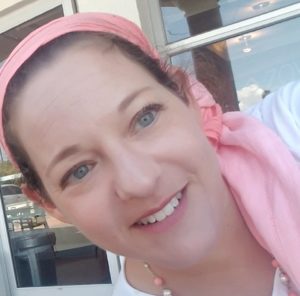Counting the days to Shavuot
Shavuot marks the Jewish people receiving the Torah. This holiday, literally meaning “Weeks,” is eagerly anticipated as the days are counted from the second day of Passover until Shavuot begins. There are exactly seven weeks between the two holidays, which is why Shavuot is called the festival of “Weeks”.
Counting the days recognizes that while the Jewish people were physically liberated from slavery during Passover, we were not yet truly free. When we received the Torah, we acquired full liberation. On that day, standing at the foot of Mount Sinai and accepting the yoke of Torah, we were truly emancipated. This is our spiritual liberation; in observing the laws and commandments, we find our freedom.
Freedom is not the ability to do as we like; freedom is adherence to a just system. The Torah was given to the Jewish people on Shavuot, providing a framework for ethical behavior, interpersonal and business relationships, and legal principles. It is on Shavuot that we became truly free as we bind ourselves to the laws of God.
The covenant between the Jewish people and God, beginning with Abraham, was solidified on Mount Sinai. It is a contractual relationship each individual accepts for themselves. It is said the entire Jewish people stood together on Mount Sinai to receive the Torah. Jews from each generation, spanning space and time, were spiritually present and individually accepted the laws.
Each year on Shavuot, Jewish communities stay awake throughout the night to learn Torah as a reenactment of that moment on Mount Sinai. Each year, we count the days from Passover in anticipation of receiving the Torah and regaining our freedom. We count the days measuring each day and week. For example, Day 8 becomes: “This is the Eighth Day, which is one week and one day.”
But do we really count time?
Is it only the days and weeks? Is it measured in moments, a shared laugh, or special occasions? Is it in the growth of a child from one generation to the next?
If time is linear, then every moment is a mark away from one event and toward some other one. If we miss the count or miss a moment, it is gone. But if we see time as circular, then each event that has been will be again. There are no missed moments. I may have missed a moment to do good, but I can return to that moment and do the right thing.
Understanding time as circular allows me to enter the covenant with God each year. With every Shavuot, I actively accept the yoke of Torah as my ancestors have done and as my children’s children will do. Time cannot be linear, because my people’s history is a constant reenactment of our story; only the actors change with each generation.
Yet, this year our eager and excited counting has been marked with sadness. This holiday time is being measured in the counting of the rockets that fall between Israel and Gaza, in the number of dead, and the amount of terror in people’s hearts. This year, it is difficult to prepare for a holiday with joy when there is violence and death.
We are instructed to eagerly await the Torah, the lifeblood of our people, yet we do so while witnessing the spilling of blood instead. My heart is heavy and aches for the innocent who suffer.
May we find our joy again when we receive the Torah this year and may it bring peace.
Karolyn Benger is a Jewish Representative on the Council for Arizona Interfaith Movement
Each year on Shavuot, Jewish communities stay awake throughout the night to learn Torah as a reenactment of that moment on Mount Sinai. Each year, we count the days from Passover in anticipation of receiving the Torah and regaining our freedom.
![]()
Faith Matters
Karolyn Benger Guest columnist
Powered by TECNAVIAPART OF THE USA TODAY NETWORK Copyright © 2021 The Arizona Republic 05/26/2021

